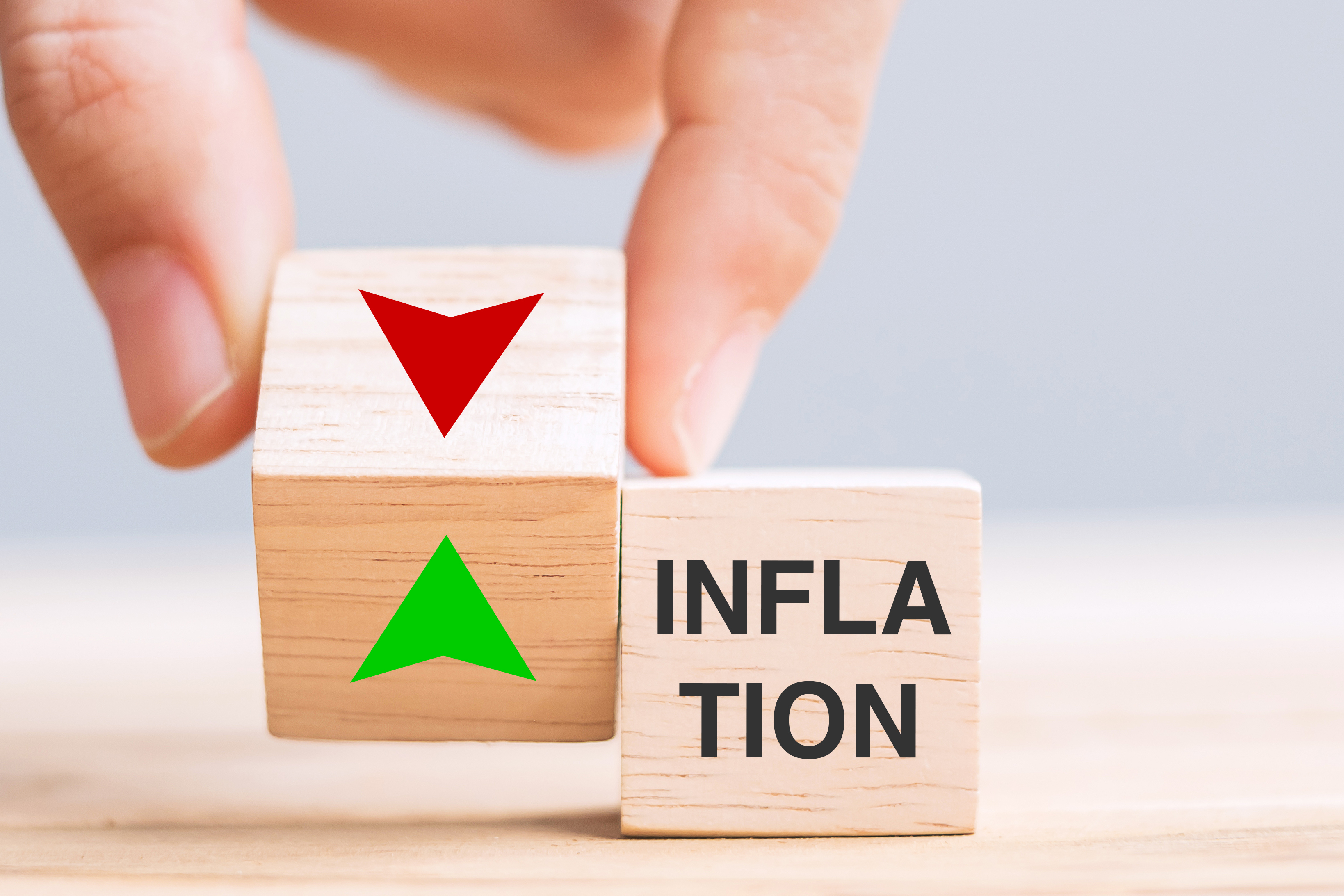Inflation unchanged ‒ what it means for you
Inflation did not increase as expected in January; what does this mean for your money?


Get the latest financial news, insights and expert analysis from our award-winning MoneyWeek team, to help you understand what really matters when it comes to your finances.
You are now subscribed
Your newsletter sign-up was successful
Want to add more newsletters?
Inflation was unchanged in January, new data from the Office for National Statistics (ONS) has revealed.
The ONS found that the consumer prices index (CPI) measurement of inflation remained at 4% in the 12 months to January 2024. On a monthly basis, CPI dropped by 0.6% in January, the same level as the fall recorded in the same month in 2023.
The fact that inflation was stagnant in the 12 months to January was actually better than expected, with many economists predicting inflation would increase once more.
Try 6 free issues of MoneyWeek today
Get unparalleled financial insight, analysis and expert opinion you can profit from.

Sign up to Money Morning
Don't miss the latest investment and personal finances news, market analysis, plus money-saving tips with our free twice-daily newsletter
Don't miss the latest investment and personal finances news, market analysis, plus money-saving tips with our free twice-daily newsletter
As a result, inflation remains at its second lowest level since September 2021.
Inflation has dropped substantially from the 11.1% peak recorded in October 2022, but it is still double the 2% target for inflation employed by the Bank of England.
The fact that inflation has not risen will mean more debate around precisely when the Bank of England will start to cut bank base rate, with mortgage holders and savers both set to be impacted by the decision.
Alice Haine, personal finance analyst at BestInvest, said that inflation staying at 4% was likely a “blip”, but cautioned that the rate was “still worrying for households hoping the cost-of-living crisis was edging into the rear-view mirror”.
WHY HAS INFLATION NOT MOVED?
One of the biggest downward drivers on the latest inflation figure was the drop in prices of furniture and household goods.
The ONS found that prices in the year to January rose by 0.5%, compared with a 2.5% rise in the year to December 2023. Just on a monthly basis, prices dropped by 3.1% between December and January, compared with a 1.1% drop between the two months a year ago.
The cost of food was also down noticeably, with the annual rate of food inflation sliding from 8% in the year to December 2023 to 7% in the year to January. That’s the lowest level for food price inflation since April 2022, and is the result of 10 consecutive monthly falls from its peak of 19.2% back in March 2023.
However, these falls were offset by a rise in the inflation rate for housing, water, electricity, gas and other fuels. The inflation rate for this category moves from 1.9% in December to 2.5% in January, and was largely the result of the increase to the energy price cap which kicked in at the start of the year.
In addition, transport costs dropped by a lower margin than a year ago, while also acted as an upward force on the inflation figure.
WHAT DOES THIS MEAN FOR INTEREST RATES?
The persistently high rate of inflation seen over the last few years has led to the Bank of England repeatedly increasing the bank base rate.
It has moved from 3.5% a year ago to its current level of 5.25%.
However, as inflation has started to creep down, the Bank of England has instead opted to freeze bank base rate at its current level. That’s why bank base rate has not moved since August last year.
This hasn’t been unanimous though, with some members of the committee calling for further increases, though the majority have voted to freeze base rate.
With inflation not increasing as predicted, thoughts will once again turn towards when base rate will actually be cut, with many economists expecting at least one reduction this year, potentially even in the first half of 2024.
Jeremy Batstone-Carr, European strategist at Raymond James Investment Services, said that the fact inflation “has not abated” justified the slow approach the Bank of England was taking towards rate reductions, though suggested “a partial loosening will provide welcome relief for hard-pressed households and businesses in the months to come”.
Haine added that the Bank of England wanted to see more evidence that inflationary pressured had eased before cutting rates.
“Among the key concerns is wage growth, which is slowing but perhaps not as fast as the BoE would like. It means borrowing costs may remain higher for longer – not the news households will want to hear as they try to balance their budgets after a challenging couple of years.”
WHAT DOES THIS MEAN FOR BORROWERS AND SAVERS?
The belief that inflation is on a downward march has already had a tangible impact on the mortgage market. Over the last few months, as funding has become cheaper for mortgage lenders, that has fed through into more competitive rates on mortgage deals.
In fact, recent weeks have seen a host of mortgage lenders opt to reduce the rates on their mortgage products in a bid to win more business from borrowers.
The expectation that base rate is only going to fall from this point has also had an impact on the savings market, with the returns on offer being consistently reduced. As a result, savers have felt the need to move quickly in order to get the best rates available while they still can.
Get the latest financial news, insights and expert analysis from our award-winning MoneyWeek team, to help you understand what really matters when it comes to your finances.
John Fitzsimons has been writing about finance since 2007, and is a former editor of Mortgage Solutions and loveMONEY. Since going freelance in 2016 he has written for publications including The Sunday Times, The Mirror, The Sun, The Daily Mail and Forbes, and is committed to helping readers make more informed decisions about their money.
-
 Financial education: how to teach children about money
Financial education: how to teach children about moneyFinancial education was added to the national curriculum more than a decade ago, but it doesn’t seem to have done much good. It’s time to take back control
-
 Investing in Taiwan: profit from the rise of Asia’s Silicon Valley
Investing in Taiwan: profit from the rise of Asia’s Silicon ValleyTaiwan has become a technology manufacturing powerhouse. Smart investors should buy in now, says Matthew Partridge
